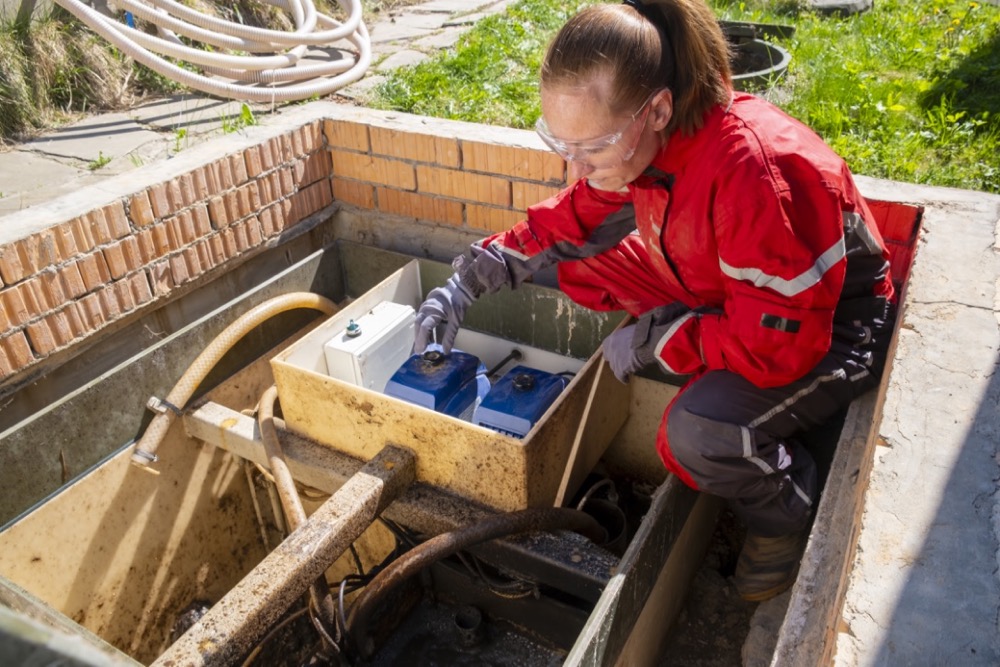
All the wastewater we use—from the bathroom, laundry, and kitchen—needs to be treated to remove or neutralize pathogens and pollutants like phosphorus and nitrogen, according to the Environmental Protection Agency (EPA). In a centralized sewer system, sewer mains flow into progressively larger pipes until they reach a wastewater treatment plant; with a private septic system, this treatment occurs on the property.
A typical septic system consists of a main drainage pipe, a septic tank and a drainfield, or soil absorption field. Systems can have additional components such as pumps and electrical float switches.
The septic tank is often a concrete, fiberglass, or polyethylene watertight container buried underground. It separates any solids, organic matter, and floatable material (such as oils and grease) from the liquid wastewater, which exits into the shallow drainfield. From the drainfield, the treated wastewater disperses through the soil, ultimately discharging to groundwater. The separated solids and sludge remain in the tank until they’re removed by a professional septic service.
The National Environmental Services Center (NESC) says that solids take about 24 to 48 hours to settle. A four-bedroom home with a 1,000-gallon tank typically would need about two days for solids to settle—but as more solids accumulate, the settling time decreases. More than one-third of the liquid depth, and the tank should be pumped and cleared.
Problems can occur when the tank is overdue for drainage or when the drainfield becomes overloaded, causing flooding or sewage to flow into the ground or back into the home, these experts say.
The EPA recommends that you have your household septic system inspected at least every 3 years and pumped every 3 to 5 years, depending on the size of your household, the septic tank, and other factors.
(If your system has mechanical components or additional pumps, the EPA suggests an annual inspection.)
To schedule an appointment or for more information, contact Morse Engineering and Construction.
